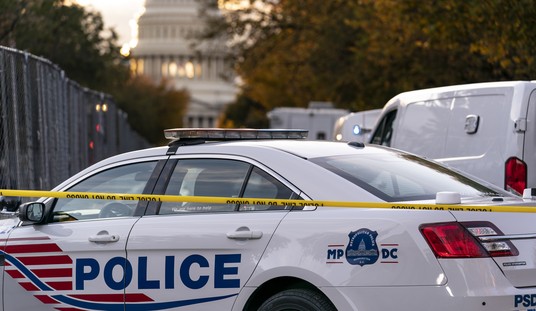If Barack Obama accepted John McCain’s challenge to visit Iraq, what would he hear from General David Petraeus? His briefing would highlight improvements on every front, including greater political reconciliation and the recent strength shown by Nouri al-Maliki in Basra and Sadr City in establishing sovereignty throughout Iraq. Obama would also learn that violence has now dropped to a four-year low, thanks to the efforts over the past 12 months to establish order through the “surge”:
The U.S. military said Sunday that the number of attacks by militants in the last week dropped to a level not seen in Iraq since March 2004.
About 300 violent incidents were recorded in the seven-day period that ended Friday, down from a weekly high of nearly 1,600 in mid-June last year, according to a chart provided by the military.
The announcement appeared aimed at allaying fears that an uprising by militiamen loyal to radical Shiite Muslim cleric Muqtada Sadr could unravel security gains since 28,500 additional American troops were deployed in Iraq in a buildup that reached its height in June.
Navy Rear Adm. Patrick Driscoll, a military spokesman, credited the decrease to a series of operations launched by the Iraqi government in the last two months to extend control over parts of the country that have been under the sway of armed Sunni Arab and Shiite militants. They include crackdowns in the southern oil hub of Basra, the northern city of Mosul and Baghdad’s Sadr City district.
The irony of this is that the improvements could result in a significant drawdown of American forces regardless of the results of our election in November. The secret surge — the buildup of a professional Iraqi Army — will soon make American combat troops superfluous. Maliki tried to go it alone in Basra and wound up needing some logistical and air support for his operations, but Sadr City appears mostly to have succeeded in staying all-IA. The quiet resolution in Mosul has established order in the last bastion of AQI, and while a number of those terrorists appear to have hotfooted out of the area before Maliki’s arrival, over a thousand suspects remain in custody.
The question facing the next president will be the manner of withdrawal, not the fact of it. The Maliki government wants American support for the near- to mid-term in order to consolidate central-government sovereignty and keep Iran out of its hair. The Iraqi Army needs a little more time to develop its troops and especially its logistics, but they now perform well enough to conduct their own security operations with little involvement of American ground troops. An orderly transition to a support role, akin to Germany and South Korea, would bolster the Iraqi elected government and keep the US military in good position to run counterterrorist operations in the region, with the Iraqis as allies.
Maliki already knows this. Iraqis will not long abide American combat troops in Iraq past the necessity, and as we see in Sadr City, the emphasis on an all-Iraqi effort makes a great deal of difference. Getting Americans out of the front lines will benefit everyone, and Maliki’s proposal for a security agreement is based on that reality. He envisions a significant drawdown in 2009 as part of that agreement, and the Iraqi Army appears ready to assume the entire front-line role.
John McCain has made this point all along. His vision of counterinsurgency warfare saved Iraq from collapsing into a Somalia with oil when that result appeared inevitable at the end of 2006. With the violence dropping rapidly and Iraq stabilizing under a representative democracy, the US cannot afford to walk away entirely and give away the strategic positioning a partnership with Iraq would provide.








Join the conversation as a VIP Member